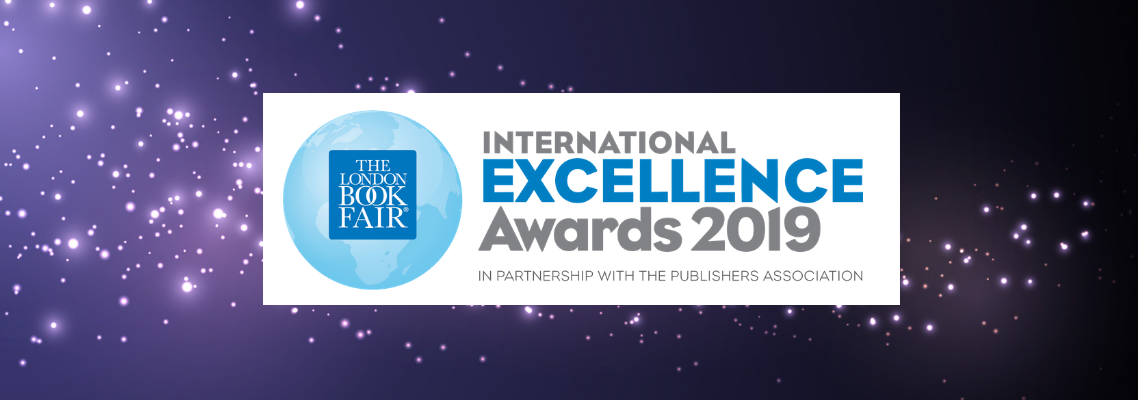Companies from Botswana, Kenya and Zambia are shortlisted for the first time in this year’s London Book Fair International Excellence Awards. With South Africa’s Virtual Reading Gym shortlisted in two categories, it means Africa as a whole equals the US with five nominations, evidence of the growing importance of the African market and a perfect run-up to the second African Publishing seminar, organised by the International Publishers Association, which will be held in Nairobi in June.
French agents dominate the Literary Agent Award in the shape of Pierre Astier, of the Astier-Pecher Literary & Film Agency and Yasmina Jraissati of the RAYA agency for Arabic literature, who are up against Asta Trummel of Estonia’s Ministry of Culture, while the Bookstore of the Year award, sponsored by Gardners once again, sees BOA Bookstore of Vietnam battling against Fang Suo Commune of China and Unity Books of New Zealand.
Still with bookselling, there was a lovely – and as you might expect – poetic paean of praise for independent bookshops from the American-Vietnamese poet and writer Ocean Vuong at the Winter Institute in Albuquerque. “Whenever someone walks into a bookstore,,” he said, “they are walking into the future of their cultural and intellectual life. A bookseller collaborates with who you are in order to show you a way forward towards more of yourself, a way you might not have known existed for you–but is still entirely your own…In a bookstore, you get a human being who is also a mapmaker of possibility. As booksellers, you are practicing, to my mind, one of our species’ oldest arts, the art of fostering, sharing and shepherding our most vital stories into the future. And I hope you are as proud of yourselves as we writers are of you.”
The library book scanning row continues with the Australian Society of Authors (ASA) among the latest bodies to send takedown notices to the Internet Archive in San Francisco. The ASA said that it is ‘deeply concerned’ by the Internet Archive’s process of scanning physical books and making those scanned copies freely available for lending to users in Australia and around the world. ‘By undertaking this activity without either seeking permission or providing fair payment to the creators, Open Library is undermining copyright, legitimate ebooks sales and standard library practices,’ the body said. ‘Given how tremendously difficult it is to earn a living from writing, the ASA is outraged on behalf of all Australian authors whose books have been unlawfully copied and made available through the Open Library.’
Alison Tweed, head of Book Aid International, will be in conversation during The London Book Fair’s Research and Scholarly Publishing Forum. It will be interesting to get an update on Book Aid’s work in Syria. In 2015, Da’esh fighters deliberately destroyed the library of the University of Mosul, burning thousands of books on philosophy, law, science and poetry in what UNESCO called “one of the most devastating acts of destruction of library collections in human history”. Book Aid has delivered books to the library in a campaign called Mosul Book Bridge started by Dr Alaa Hamdon, a lecturer at the university. His dream, he says, is to see these books “being used by student and readers again”.
One woman who must be hoping that Roma triumphs at the Oscars this weekend is Sandra Cisneros, the Mexican-American writer whose work explores the lives of the working class. Interestingly, she is apparently working on an essay about the film told from the standpoint of domestic workers.
Next week she will receive the $50,000 PEN/Nabokov Award for Achievement in International Literature in New York, given annually “to a living author whose body of work, either written in or translated into English, represents the highest level of achievement in fiction, non-fiction, poetry and/or drama, and is of enduring originality and consummate craftsmanship”. She is famous for the coming-of-age novel The House on Mango Street, and has said that she will give the award purse to her assistants so that they can buy a home.
Finally, in this sad week that has seen the death of Windrush generation chronicler Andrea Levy, another reminder that the Empire Windrush itself – now one of the most famous ships in the world – still lies on the sea-bed off the coast of Algeria where it sank in 1954 and where it waits for a narrative non-fiction writer to tell it story and metaphorically raise it from the sea-bed.

Roger Tagholm writes our Snapshot of the Week.

